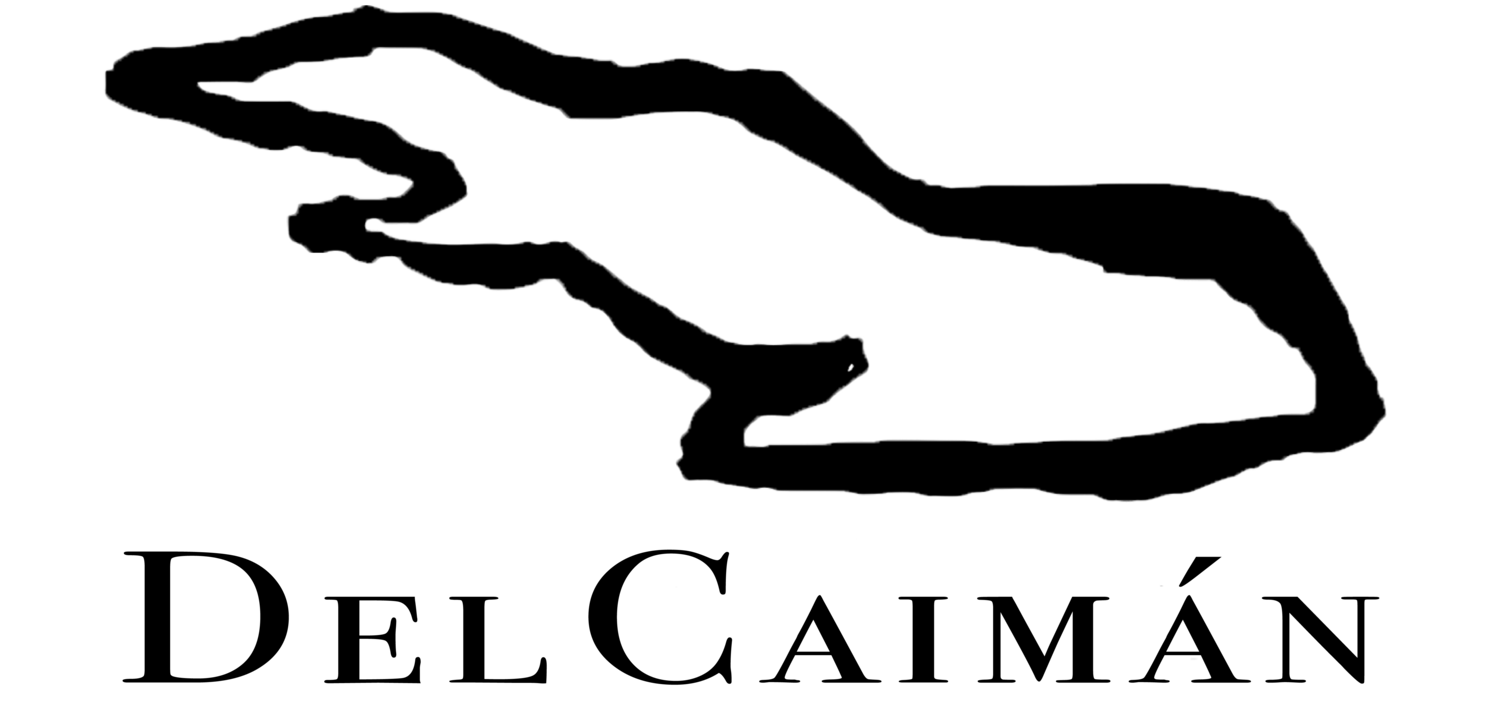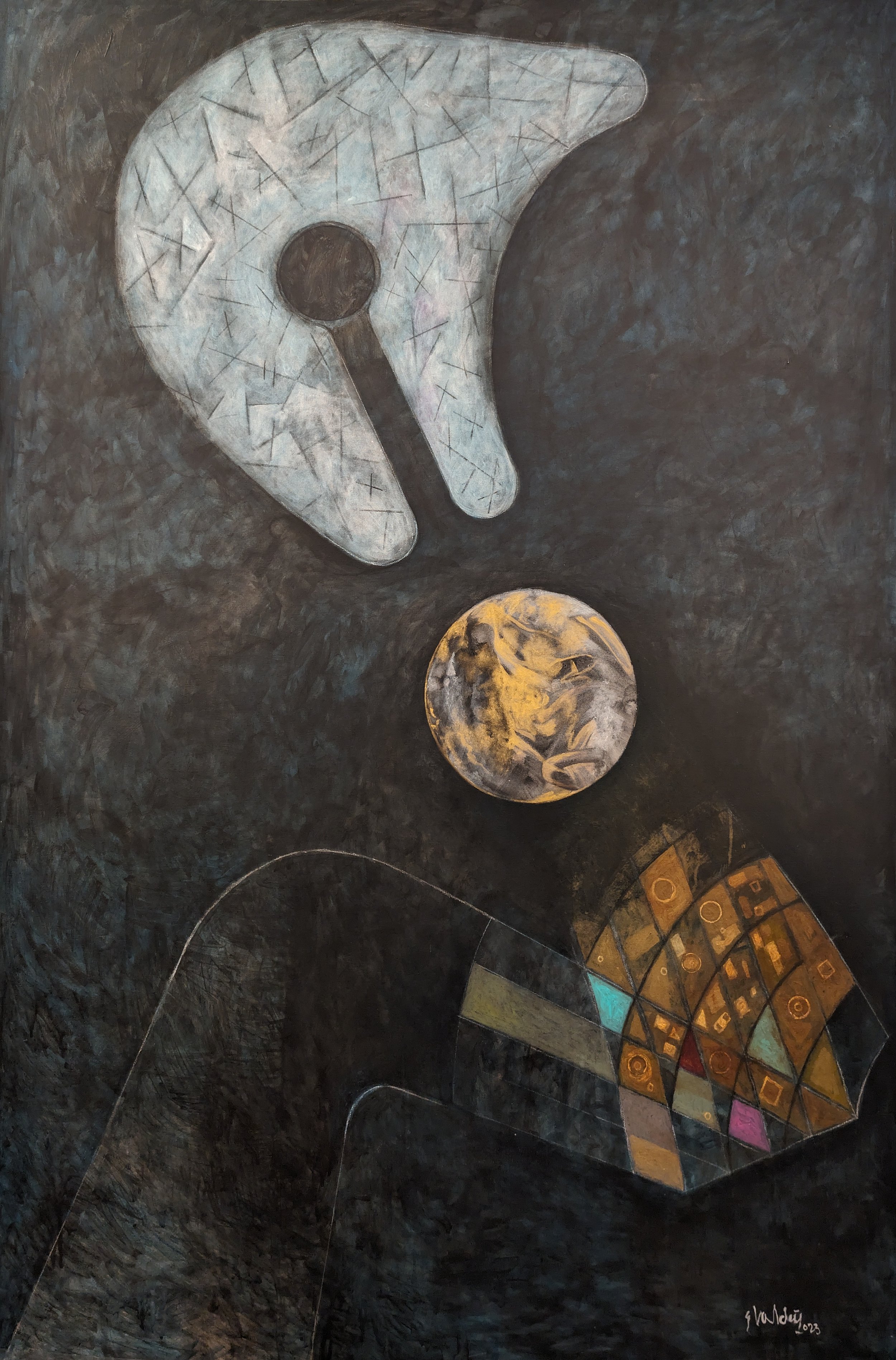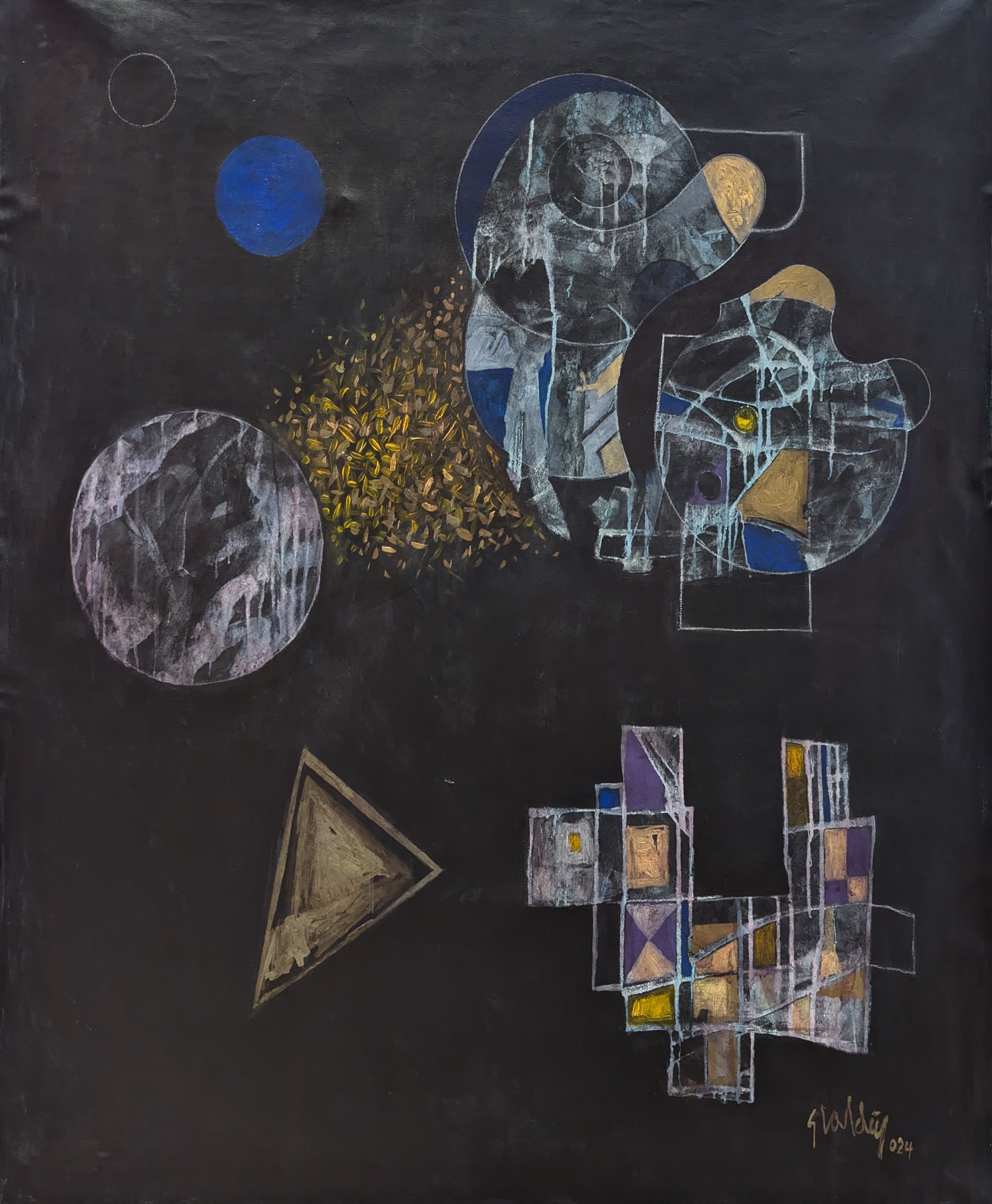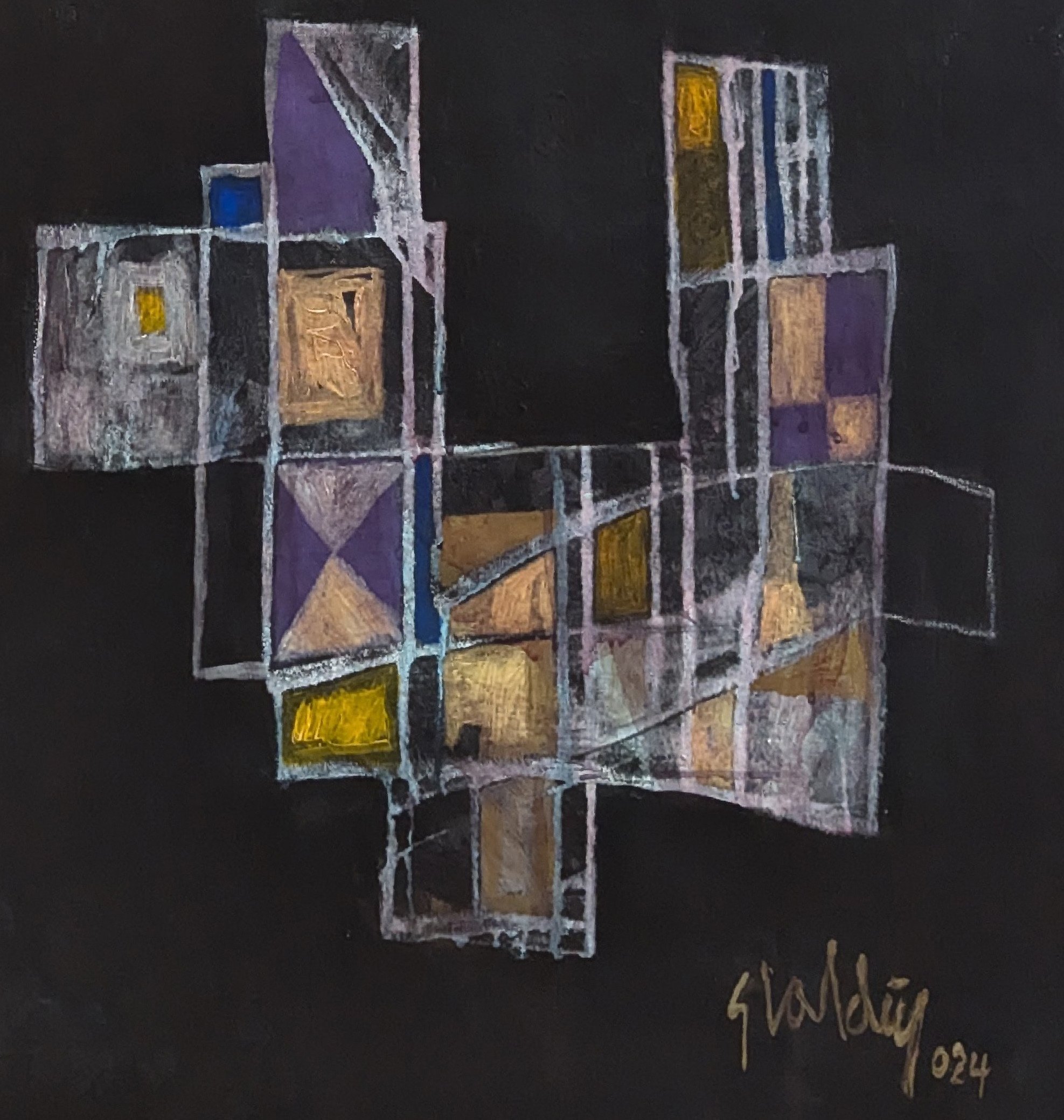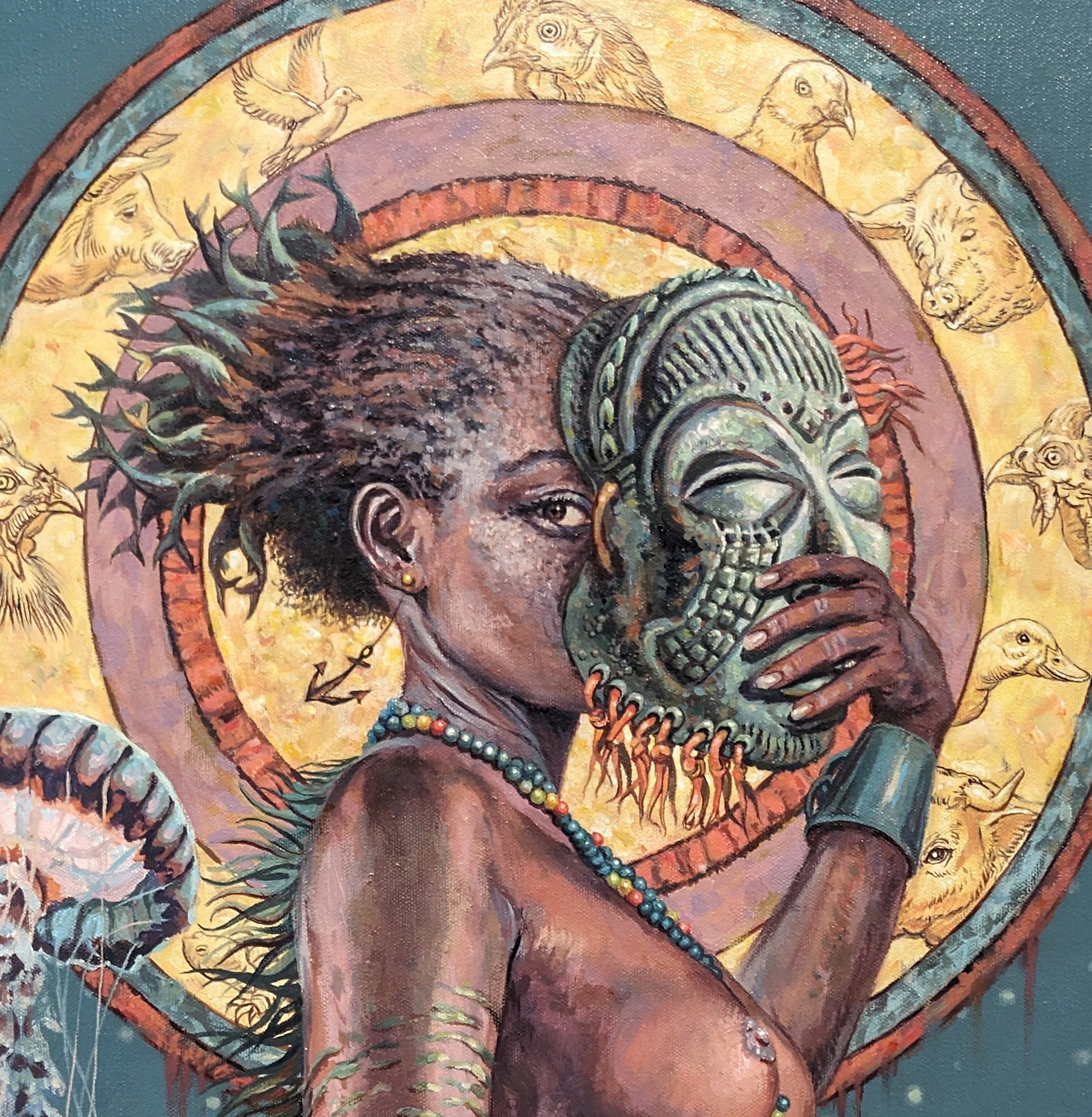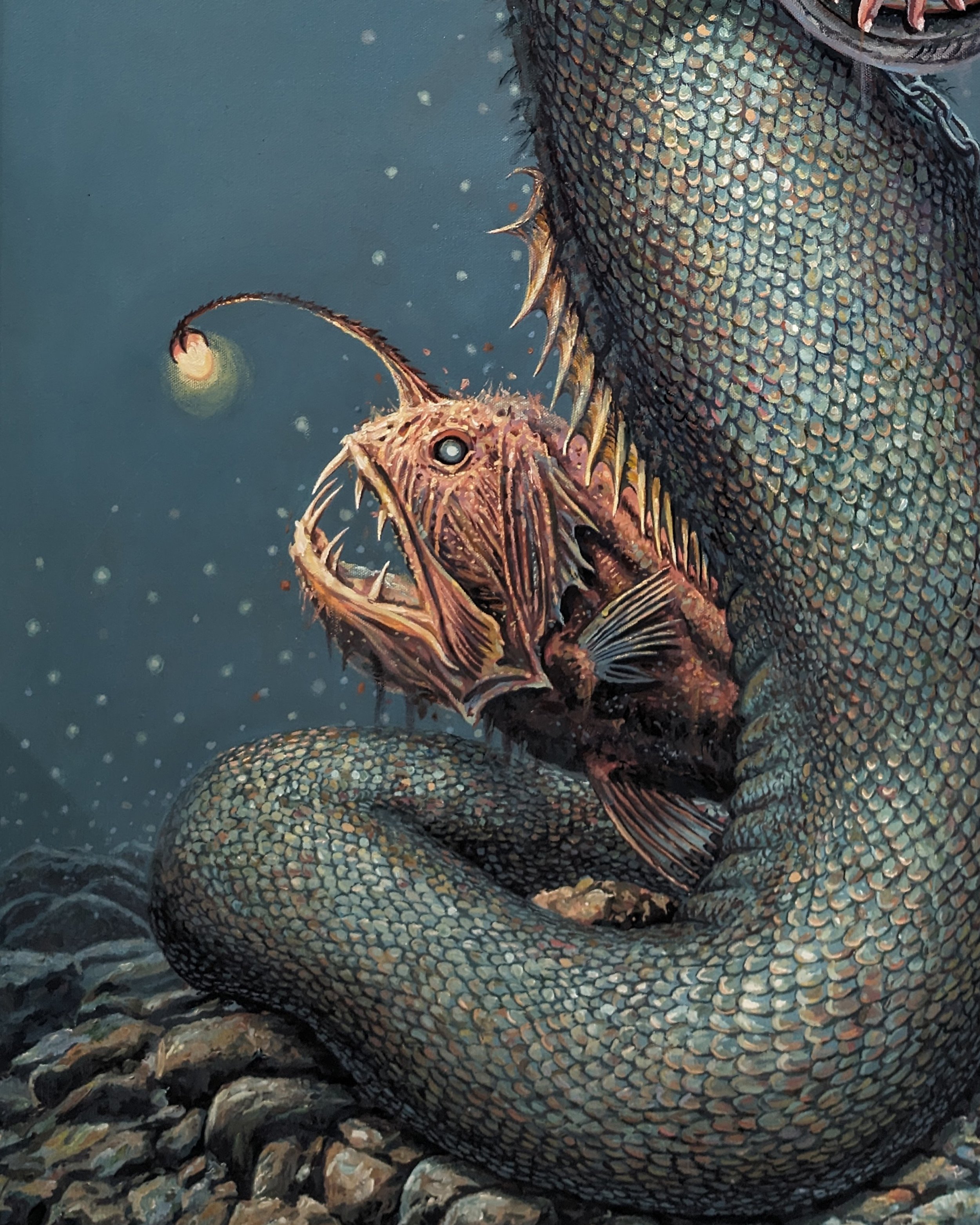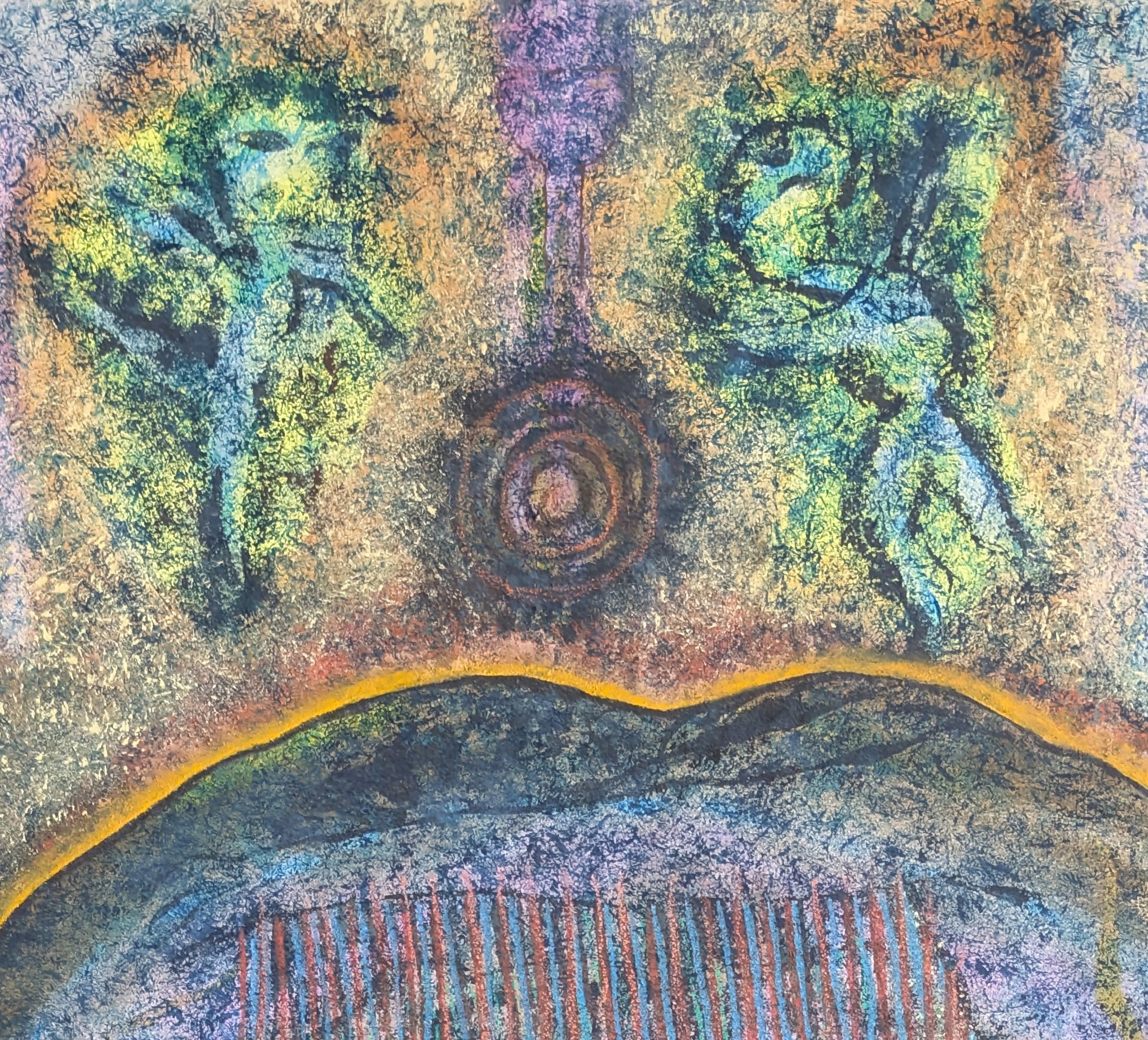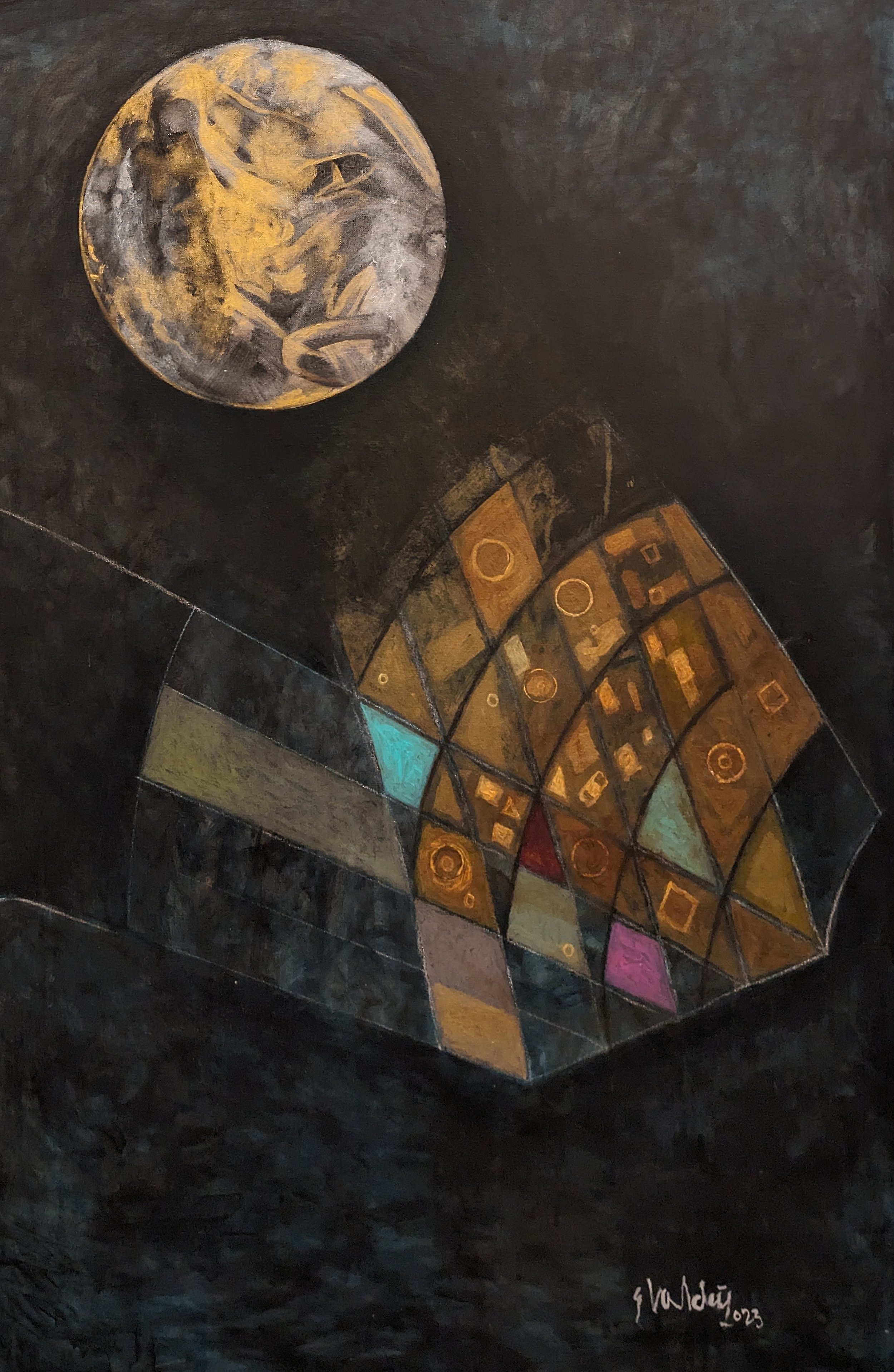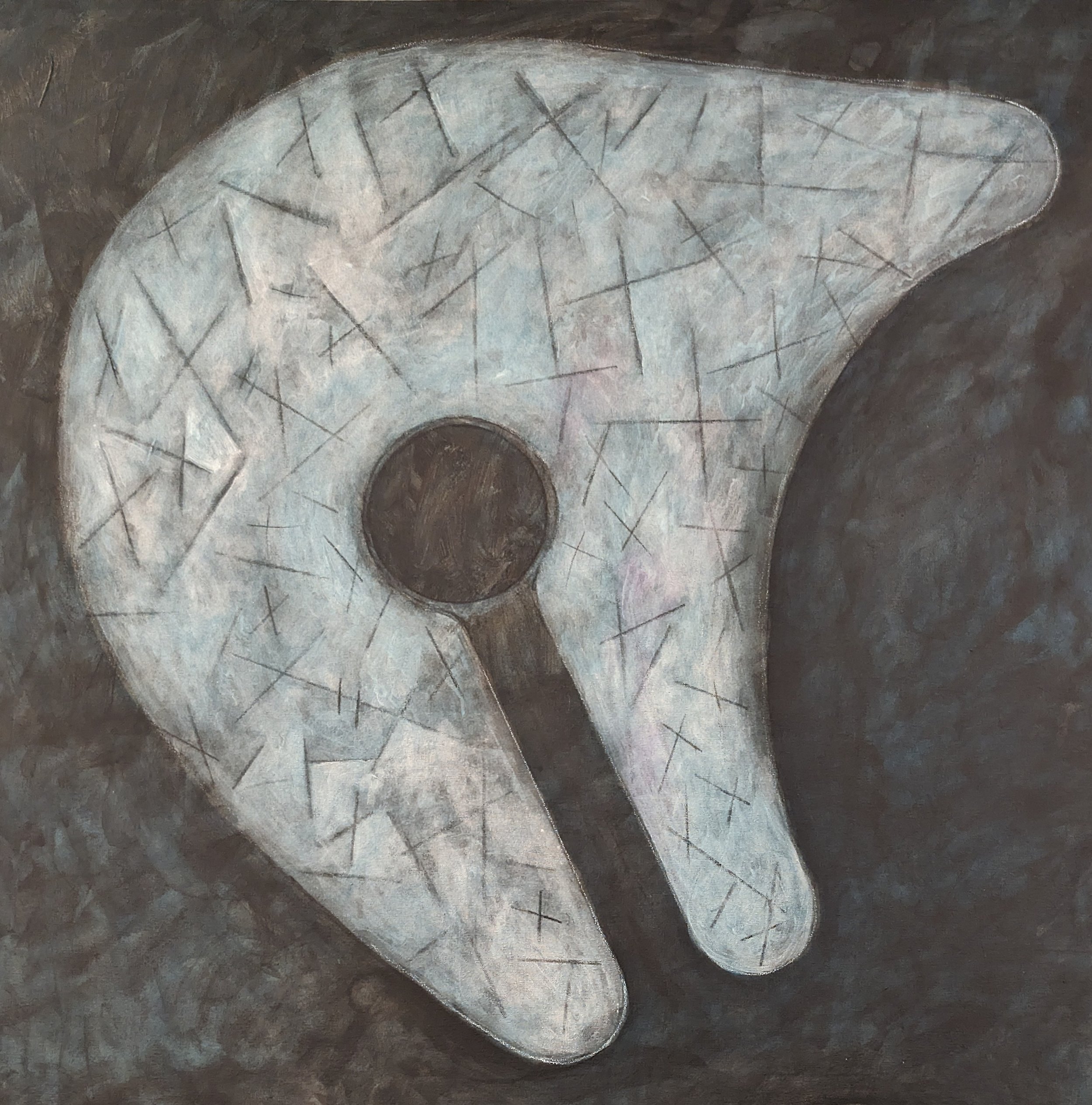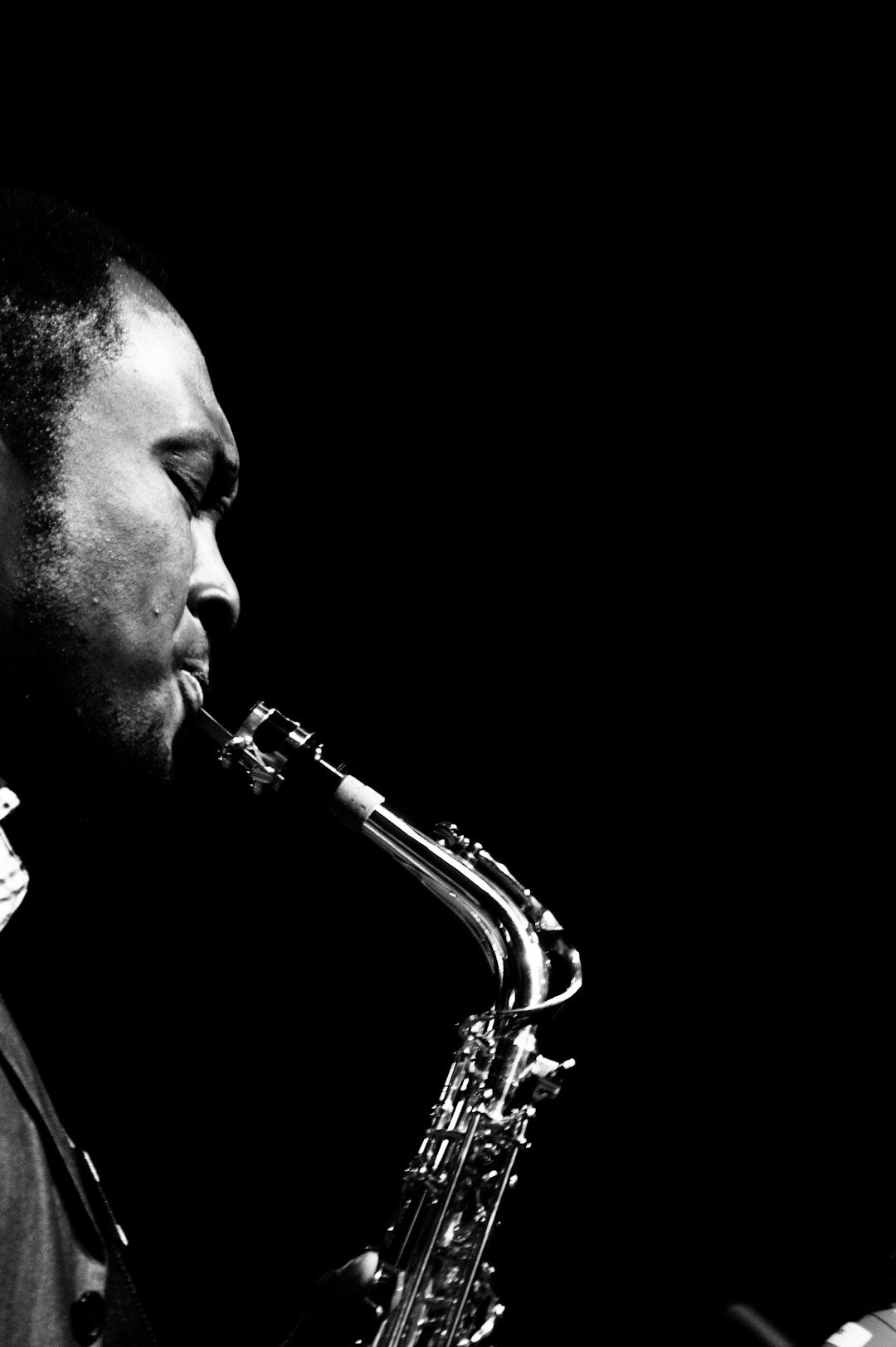
Del Caimán Presents:
Sojourn with Cueva
Welcome to an extraordinary evening where art and music come together in a way you've never experienced before.
Five of the most significant works from our collection will be revealed in a one-of-a-kind showcase, each accompanied by an original composition from Del Caimán’s in-house jazz band. These songs have been thoughtfully crafted to reflect the essence of the artworks, creating a harmonious dialogue between visual and auditory art.

Olokún
By Juan Carlos Verdial
Beneath the ocean's surface, in a realm untouched by time, resides Olokun, the androgynous deity of the Yoruba religion, chained at the sea's abyssal depths. This act of restraint by Obbatalá, the creator, prevented Olokun's devastating flood intended to erase humanity. Embodying both the tempest and tranquility of the sea, Olokun is a figure of dual nature: fearsome in his anger, serene in her calm, a guardian of the ocean's riches and health.
In one hand, Olokun clasps a snake, symbolizing wisdom and protection, while the other holds a mask, reflecting the mysteries beneath the surface. A halo of life, depicted through offerings of animals sacred to Olokun, illuminates the deity's figure, signifying respect and the life-death cycle.
Adorned with traditional Elekes, beads of deep blue, white, red, yellow, and green encircle Olokun’s neck, representing the deity’s spiritual attributes. The painting is alive with symbols: lost ships, anchors, sea creatures, and colors sacred to Olokun—blue, white, and black—each element a testament to the deity's dominion over the sea's depth and mysteries.
"Maferefún Olokun" echoes as a greeting of reverence, capturing the essence of balance, compassion, and the interconnected dance of creation and destruction.

SOLD
Gitana Habanera
By Juan Blanco Lozano
This piece is inspired by the "La Gitana Tropical" a work by one of the great avant-garde artists of Cuban visual arts in the 1950s. The artwork draws upon the typical colorful ambiance of our cultural identity, featuring warm colors, sensuality, and a serene facial expression, aiming to convey a sense of tranquility in the gaze. It reflects a Cubist influence in its composition and color design, with simple lines that avoid formal conflict. This stylized form has been a characteristic of my other works from that period.
Titled "Havana Gypsy" as a nod to its place of origin, the work also embraces the Spanish influence, particularly that of the Andalusian gypsy, in our culture. For me, this is a beautiful, unique, and unparalleled artwork.

SOLD
Comodín 6
By Orlando Barea
An endless pursuit—longing, hope, and struggle collide as humanity strives for transformation, always seeking fulfillment just beyond reach. Time, relentless and unyielding, propels man forward, forcing him into perpetual motion as he chases the highest ideals.
In this mystical realm of uncertainties, kings on playing cards are not emblems of power, but symbols of life’s ultimate aspirations. They represent the supreme goals man seeks in a world where silence hums with the noise of inner battles. Every step is a collision of chaos and clarity, a journey through the unseen and the unknown, where meaning emerges in the tension between what we grasp and what eludes us.

Orilé
By Jorge Hidalgo Pimentel
In the heart of spiritual tradition, "Orilé" stands as a profound act of summoning. Derived from the Yoruba language, it translates to "meeting to invoke," symbolizing the sacred circle formed when hands join and the ground vibrates under the weight of rhythmic chants and stomping feet. In these moments, frenetic yet deliberate, spirits descend and take form, called forth by the collective energy of the faithful.
Hidalgo’s 2005 work captures this transcendent ritual, offering a visual and conceptual gateway into a rarely explored aspect of popular religiosity. "Orilé" is not just an artistic creation; it is an invocation, an act of spiritual communion embodied in form and movement, inviting the viewer to witness the powerful meeting between the physical and the divine. The chant rings out: "orilé... orilé, vamos a hacer cordón," a call to summon the spirits, to form a cord that ties the sacred to the earthly, revealing the power of connection through collective faith.

Cosmogonía I
By Eliseo Valdés Erustes
In the mysterious darkness of the cosmos, an ancient enigma comes into view. The canvas of history unfolds, intertwining the evolution of earthly civilizations with the intriguing presence of beings from distant worlds. In the bottom right corner, the palette of Egyptian colors evokes a connection lost in time, while in the top left corner, an ethereal figure radiates a cosmic presence. At the center, a celestial sphere emanates infinite possibilities, challenging our perceptions and unveiling the hidden secrets of the universe's vastness.
This painting invites the viewer on a journey beyond the confines of known space and time, suggesting a universe teeming with mysteries yet to be discovered. It speaks to the curious spirit inherent in humanity, the drive to explore and understand the unknowable. Each element—the ancient Egyptian motifs, the mysterious cosmic beings, and the central sphere of endless potential—works together to weave a narrative of cosmic connection and the unending quest for knowledge. Through this visual odyssey, we are reminded of our place in the vast tapestry of the cosmos, connected to the past, present, and future in ways we are only beginning to comprehend.
